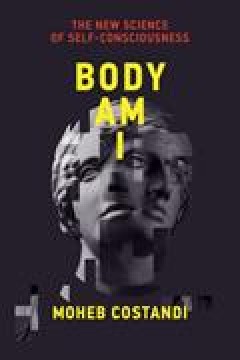Filter by

Schools for thought :a science of learning in the classroom
"A Bradford book."OCLC-licensed vendor bibliographic record.
- Edition
- -
- ISBN/ISSN
- 9780262269384
- Collation
- 1 online resource (x, 324 pages) :illustrations
- Series Title
- -
- Call Number
- -

Representation and Recognition in Vision.
AnnotationOCLC-licensed vendor bibliographic record.
- Edition
- -
- ISBN/ISSN
- 9780262272155
- Collation
- 1 online resource (402 pages)
- Series Title
- -
- Call Number
- -

Representation and behavior
"A Bradford book."Keijzer provides a reconstruction of cognitive science's implicit representational explanation of behavior, which he calls Agent Theory (AT), the use of mind as a subpersonal mechanism of behavior.Representation is a fundamental concept within cognitive science. Most often, representations are interpreted as mental representations, theoretical entities that are the bearers of …
- Edition
- -
- ISBN/ISSN
- 9780262276894
- Collation
- 1 online resource (viii, 276 pages)
- Series Title
- -
- Call Number
- -

Reconstructing the cognitive world :the next step
"A Bradford book.""In Reconstructing the Cognitive World, Michael Wheeler argues that we should turn away from the generically Cartesian philosophical foundations of much contemporary cognitive science research and proposes instead a Heideggerian approach. Wheeler begins with an interpretation of Descartes. He defines Cartesian psychology as a conceptual framework of explanatory principles and …
- Edition
- -
- ISBN/ISSN
- 9780262286039
- Collation
- 1 online resource (xi, 340 pages)
- Series Title
- -
- Call Number
- -

Readings in Philosophy and Cognitive Science.
AnnotationOCLC-licensed vendor bibliographic record.
- Edition
- -
- ISBN/ISSN
- 9780262287814
- Collation
- 1 online resource (872 pages)
- Series Title
- -
- Call Number
- -

Sketches of thought
"A Bradford book."Revision of the author's thesis (doctoral)--University of California, Berkeley, 1991.Much of the cognitive lies beyond articulate, discursive thought, beyond the reach of current computational notions. In Sketches of Thought, Vinod Goel argues that the cognitive computational conception of the world requires our thought processes to be precise, rigid, discrete, and unambiguous…
- Edition
- -
- ISBN/ISSN
- 9780262273985
- Collation
- 1 online resource (xv, 279 pages) :illustrations
- Series Title
- -
- Call Number
- -

Body Am I: The New Science of Self-Consciousness
- Edition
- -
- ISBN/ISSN
- 9780262368711
- Collation
- -
- Series Title
- -
- Call Number
- -
- Edition
- -
- ISBN/ISSN
- 9780262368711
- Collation
- -
- Series Title
- -
- Call Number
- -

The Neurocognitive Theory of Dreaming: The Where, How, When, What, and Why of…
- Edition
- -
- ISBN/ISSN
- 9780262370882
- Collation
- -
- Series Title
- -
- Call Number
- -
- Edition
- -
- ISBN/ISSN
- 9780262370882
- Collation
- -
- Series Title
- -
- Call Number
- -

The Entangled Brain: How Perception, Cognition, and Emotion Are Woven Together
- Edition
- -
- ISBN/ISSN
- 9780262372107
- Collation
- -
- Series Title
- -
- Call Number
- -
- Edition
- -
- ISBN/ISSN
- 9780262372107
- Collation
- -
- Series Title
- -
- Call Number
- -

 Computer Science, Information & General Works
Computer Science, Information & General Works  Philosophy & Psychology
Philosophy & Psychology  Religion
Religion  Social Sciences
Social Sciences  Language
Language  Pure Science
Pure Science  Applied Sciences
Applied Sciences  Art & Recreation
Art & Recreation  Literature
Literature  History & Geography
History & Geography